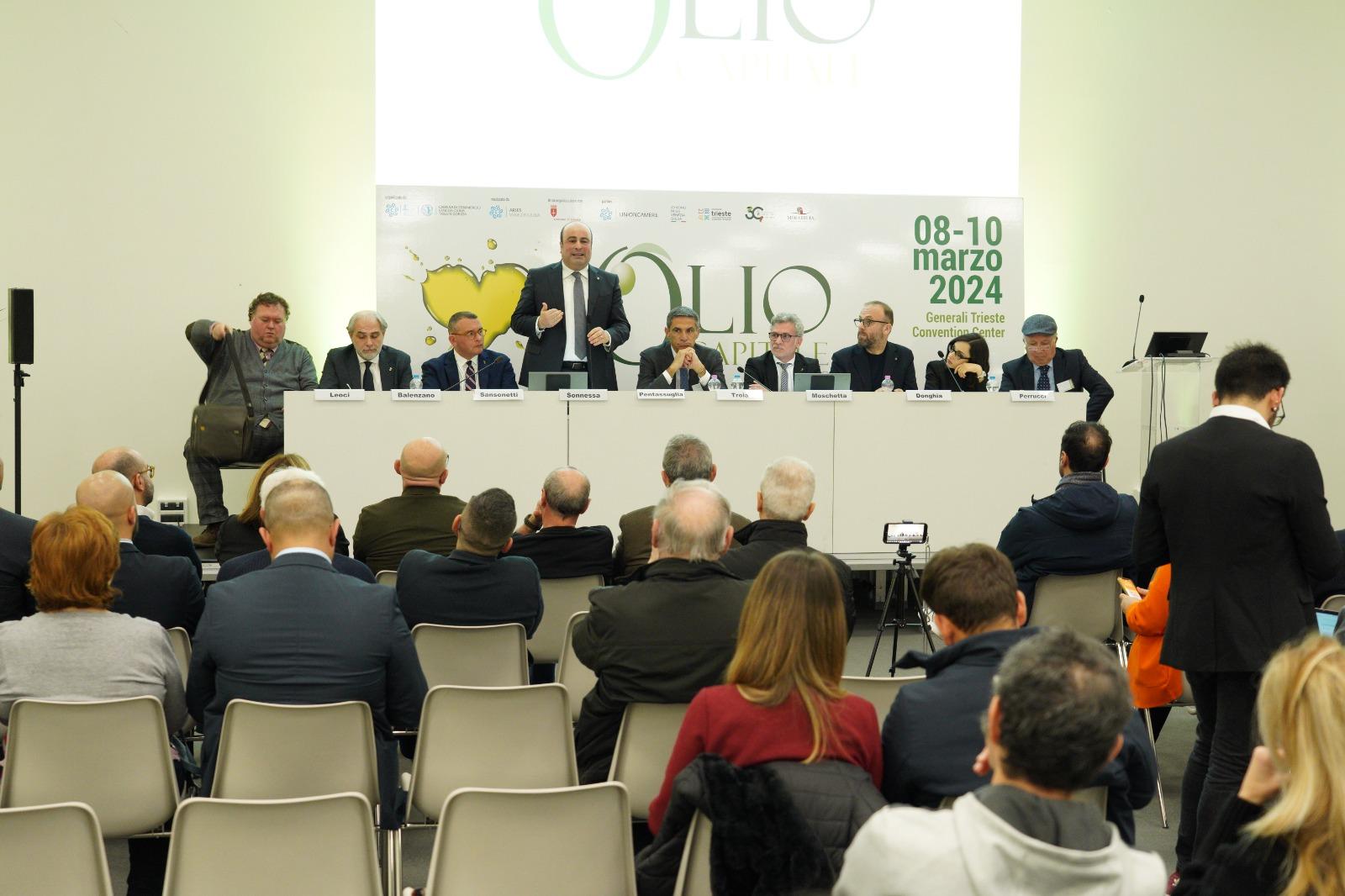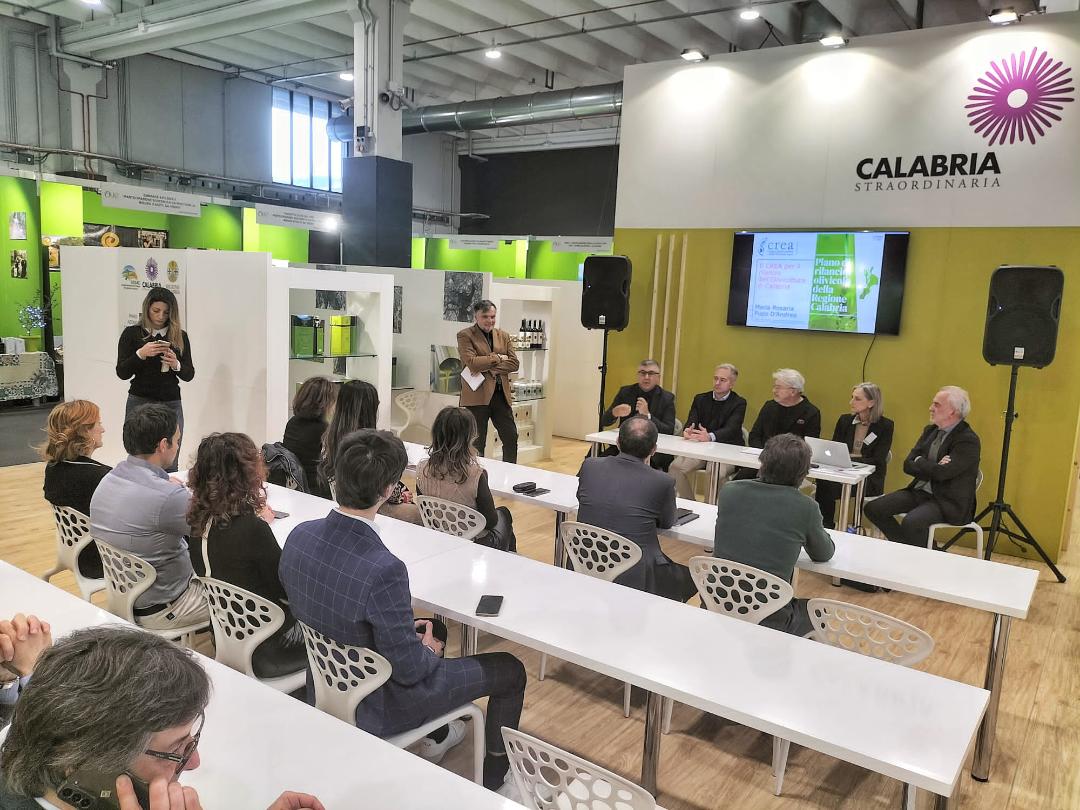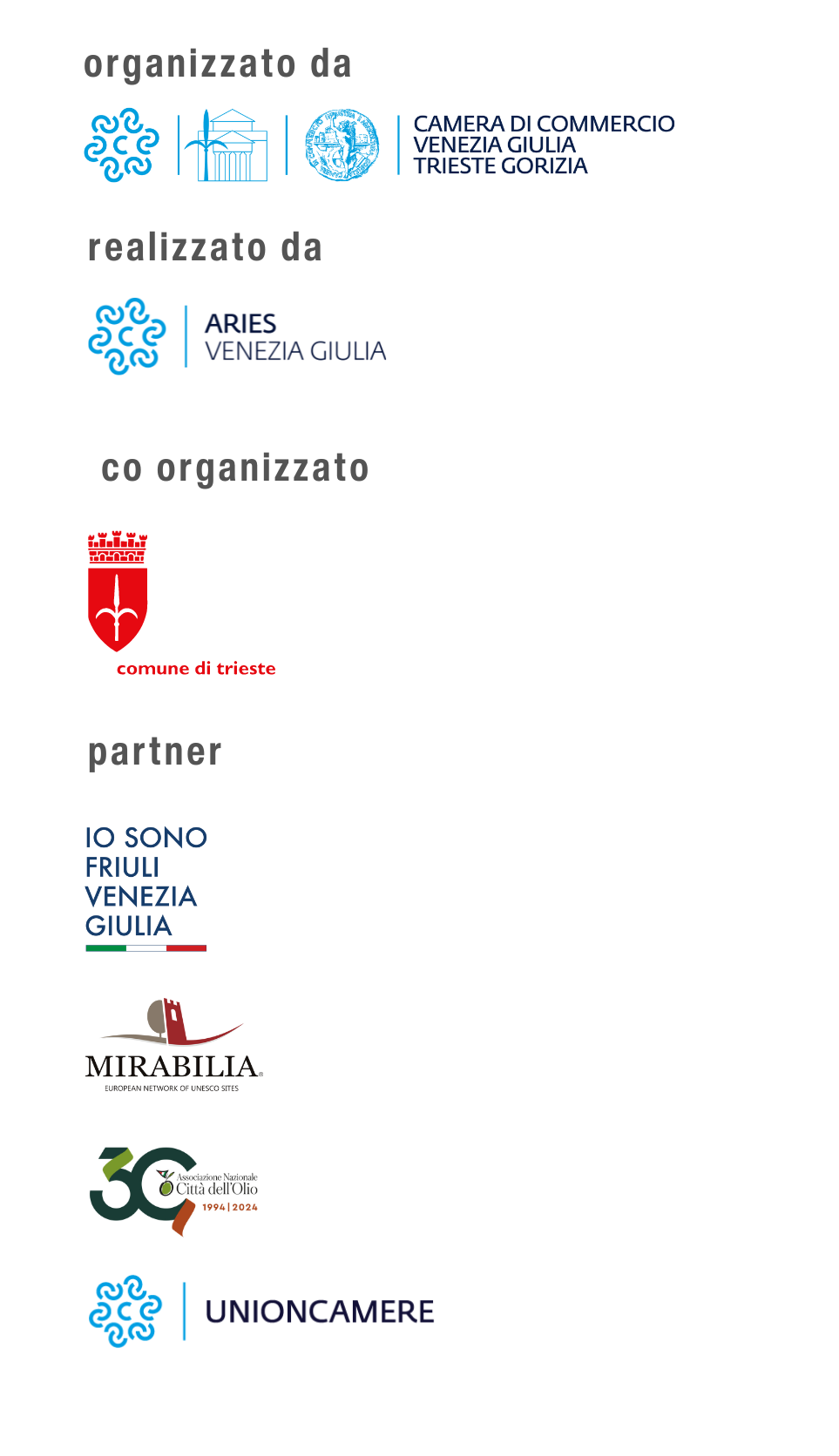SECOND DAY OF OLIO CAPITALE
There was great interest in the second day of Olio Capitale, the fair for quality extra virgin olive oil. The fair is organized in Trieste by the Venezia Giulia Chamber of Commerce through its in-house company Aries, in collaboration with the National Association of Oil Cities, the co-organization of the Municipality of Trieste and with Unioncamere nazionale, the Mirabilia network, Io Sono Friuli Venezia Giulia and the Trieste Convention and Visitors Bureau as partners.Insights related to oil, its production and the characteristics that make it a health food, flanked the tastings, tastings and hundreds of meetings between producers and buyers that marked this second day of the 16th edition of Olio Capitale.
Many curiosities and product varieties could be found among the booths of the fair, which is completed in all areas of the Generali Convention Center Trieste’s Porto Vecchio. Two, this year, the Oil Bars available to visitors to discover and learn more about the Italian olive varieties present in the fair exhibition. A wide and varied offer that touches the major producing regions of the Peninsula, through a truly unique sensory journey, with the opportunity to have hundreds of labels available at the same time.
FOCUS ON APULIAN EVO OIL
Right from the morning there was a large attendance at the in-depth conferences of Olio Capitale. The protagonist in the conference room was “Puglia’s Evo oil” in an appointment introduced by the president of the Association of Oil Cities, Michele Sonnessa and the coordinator of the Association for Puglia, Cesareo Troia. A discussion that on Apulian oil was particularly interesting from which the characteristics of quantity and quality of the product emerged. “Apulian extra virgin olive oil,” said Antonio Moschetta, professor of internal medicine at the Aldo Moro University of Bari, “has unique characteristics. We looked at some individual cultivars such as Coratina, Oliarola cima di Bitonto, Cima di Moda, and Peranzana, and we saw that after intake, the number of genes that are turned on in our organism are very specific to eachcultivar. Nearly 1,800 genes out of the 46,000 studied, and of these, 80 percent are cultivar-specific.More respect must be given to soils, soil and climate conditions, micronutrients and the DNA of the plants.If they are born and grow in an area, it is because these plants must give a fruit from which we get an Evo like the one from Puglia that has fantastic nutrigenomic effects. Olio Capitalehas realized the dream of being able to have in the oil bar all Italian monocultivars: the future is the defense of the monocultivars that distinguish Italian uniqueness.”
For Puglia’s Regional Councillor for Agriculture, Donato Pentassuglia, the engagement with the Oil City Association is aimed at “involving the operators of the supply chain, starting with the municipalities in which these companies and producers insist to stand together and face what is the prospect of selling extra virgin oil, talking about its qualities and matching with the university system to give the opportunity to explain in conscious terms all the properties of oil and the impact on health. Olio Capitale is a great opportunity that I have verified in person in previous years, and this year we have doubled Puglia’s exhibition capacity precisely because we think it is appropriate and important to be there. This fair focuses on the quality of the productions and puts the producers of extra virgin olive oil of excellence in a fair position to compete.”
CALABRIA INVESTS IN OLIVE GROWING.
A 360-degree focus on olive oil was held today at Calabria’s large stand to talk about the region’s specificities and the future of the product.
Among the speeches was one by Gianluca Gallo, regional councillor for agriculture, “Ours is one of the most important regions in terms of olive production in the country,” he recalled, “and among the most important for organic production. We have decided to grow, because we have decided to focus on quality by investing in our companies, with an olive-growing revival plan with investments of 50 million over the next five years, and to make sure that all this is geared toward growth in terms of the quality of our products, which have a great fortune, the fertility of our land, a great biodiversity and above all the possibility, with a temperate climate, to produce with great strength.”
The conference was also attended by the president of the Chamber of Commerce Venezia Giulia, Antonio Paoletti, who emphasized “the pleasure of seeing so many young people working in the land and on family farms, we must all work together, what we have done for wine, which has become an Italian excellence, we must also do for oil and an appointment like Olio Capitale allows for an important annual focus in the sector and gives us the inputs to carry forward. We have also been invited to go to Calabria with this kind of fair,” he added, “we will think about it.
THE PROGRAM FOR SUNDAY, MARCH 10
OIL BAR open from 10 a.m. to 7 p.m.
Promoting the culture of extra-virgin olive oil passes through Olio Capitale’s Oil Bar where – seated comfortably at the counter – you can choose from hundreds of labels at the fair. Divided between “Monocultivar” (light/medium/intense) and “Blend” (light/medium/intense) to allow everyone to best grasp the characteristics of the different products featured at Olio Capitale 2024.
ore 10.30
STAND NATIONAL ASSOCIATION OF OIL CITIES
Book presentation
“Think about it first” with author Sara Farnetti.
OIL ROOM
SECRETS IN THE KITCHEN: EVERY OIL MAKES A DIFFERENCE
With the collaboration of the National Organization of Olive Oil Tasters (O.N.A.O.O)
How the same dish changes flavor with different extra virgin oils
11 a.m. – 11:45 a.m.
Tasting dish: 4 tomatoes, oregano, marjoram and 4 different evo oils
*bookings on the spot, limited number
Calabria Space
11 a.m.
The Calabria of PDO, PGI and Slow Food Presidia Certifications
11:00 Registration of participants
11:15 a.m. Greetings and introduction
11:30 a.m. Dr. Rosario Franco,Official Department of Agriculture, Agri-food Resources and Forestry of the Region of Calabria.
12:00 noon Dr. Cesare Renzo, Sweet Producer of Rossano and responsible for the Slow Food Presidium;
12:30 p.m. Dr. Antonio Lauro, Department of Agriculture, Agri-food Resources and Forestation official of the Region of Calabria.
Michelangelo Notarianni, Lametia DOP Committee.
The activity of the consortium Unveiling “Dea Carolea”





